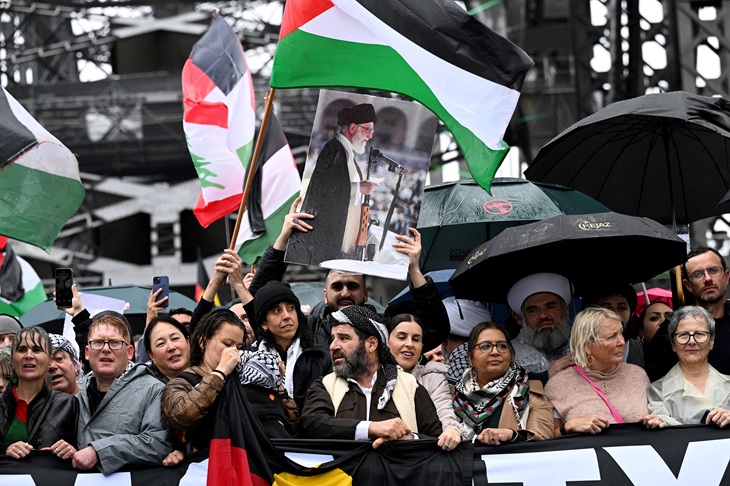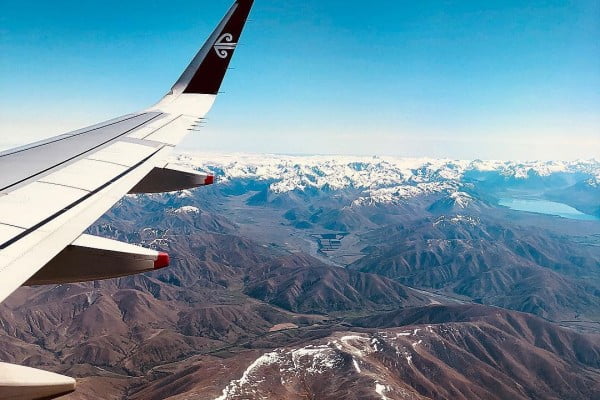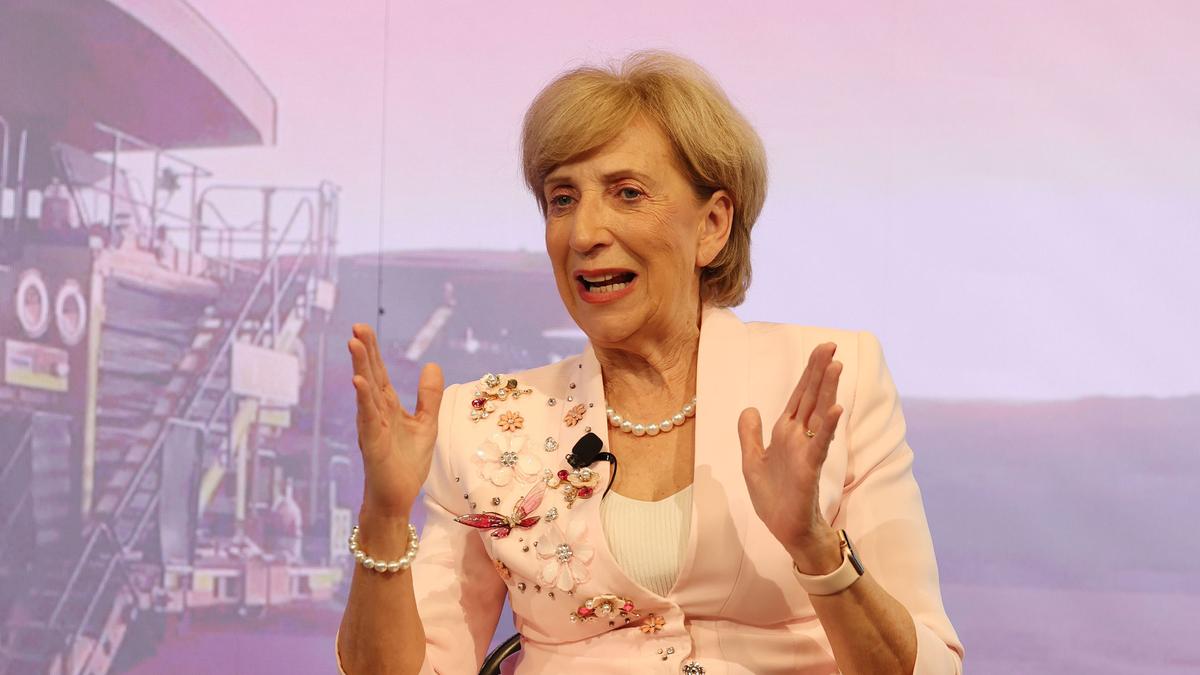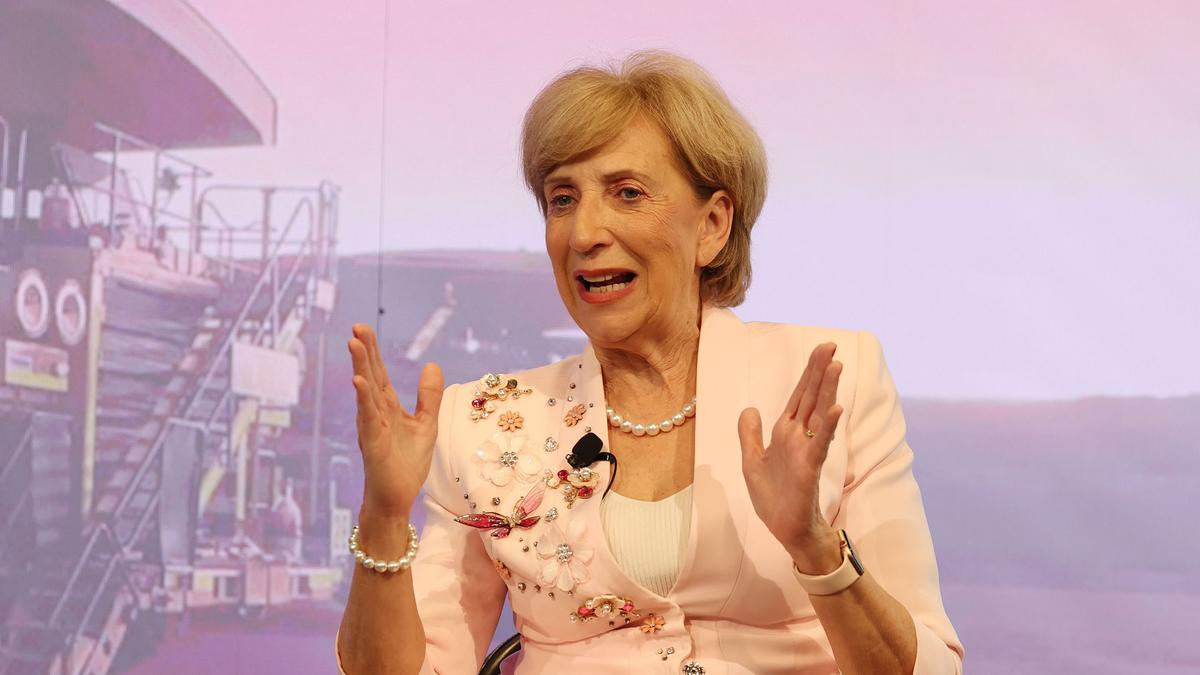
TOPSHOT - A protester raises a portriat of Iran's Supreme Leader Ayatollah Ali Khamenei across the Sydney Harbour Bridge during a pro-Palestinian rally against Israel's actions and the ongoing food shortages in the Gaza Strip, in Sydney on August 3, 2025. (Photo by Saeed KHAN / AFP) (Photo by SAEED KHAN/AFP via Getty Images)
UPDATE: The status of Palestinian statehood is under urgent scrutiny as international recognition continues to evolve. Recent developments have prompted critical discussions surrounding Palestine’s legal standing as a sovereign state, particularly in light of its growing acknowledgment by various nations.
As of 2012, the United Nations General Assembly granted Palestine non-member observer state status, allowing it to join international organizations like the International Criminal Court (ICC). However, the ongoing Israeli occupation complicates the practical implementation of statehood. Over 130 UN member states now recognize Palestine, yet full membership remains obstructed by persistent U.S. vetoes in the Security Council.
The Montevideo Convention of 1933 provides a framework for statehood, requiring a permanent population, defined territory, and a governing authority. Palestine meets these criteria, with a stable population located in the West Bank, Gaza, and East Jerusalem, and a governing structure that includes the Palestinian Authority and Hamas.
Despite this, the question of effective governance remains a significant hurdle. As political theorist Brian Patrick Bolger emphasizes, the lack of cohesive authority during crises challenges the Palestinians’ ability to assert themselves fully as a state. Additionally, the Israeli settlements and military presence in occupied territories further complicate the landscape.
“The principle of self-determination is enshrined in the UN Charter,” says Bolger. “However, the realities on the ground hinder actualization.”
The ICC’s acceptance of jurisdiction over crimes committed in the occupied territories is a notable step, indicating that Palestine is treated as a state within certain international legal frameworks. Yet, the concept of statehood remains ambiguous, akin to Schoedinger’s Cat—simultaneously present and absent in the international system.
The urgency surrounding this issue underscores the broader implications for peace in the region. The Israeli-Palestinian conflict is often framed as a zero-sum game, where one side’s gain is perceived as an existential threat to the other. This perception makes the prospect of a two-state solution increasingly challenging.
As the international community grapples with these developments, the question remains: what will it take for Palestine to achieve full statehood? The evolving geopolitical landscape suggests that the dialogue surrounding Palestinian rights and recognition is far from over.
Watch for further updates as this critical issue develops, impacting not only regional stability but also international relations and human rights discussions globally.






